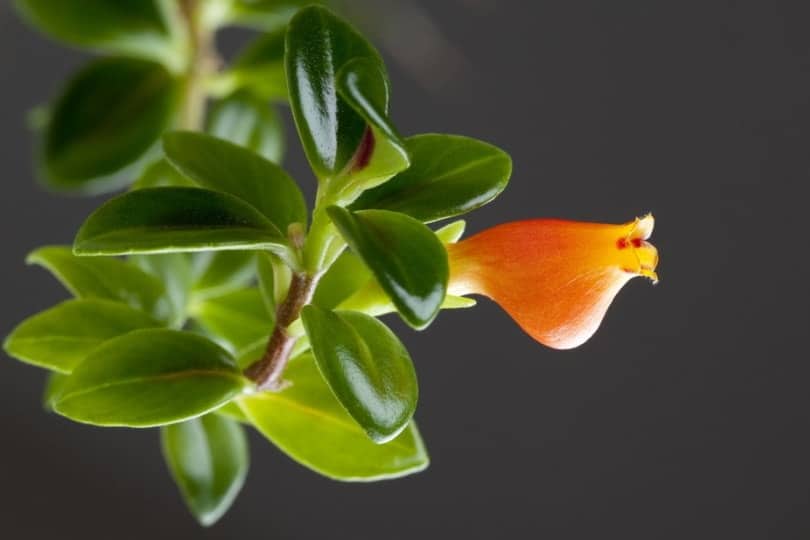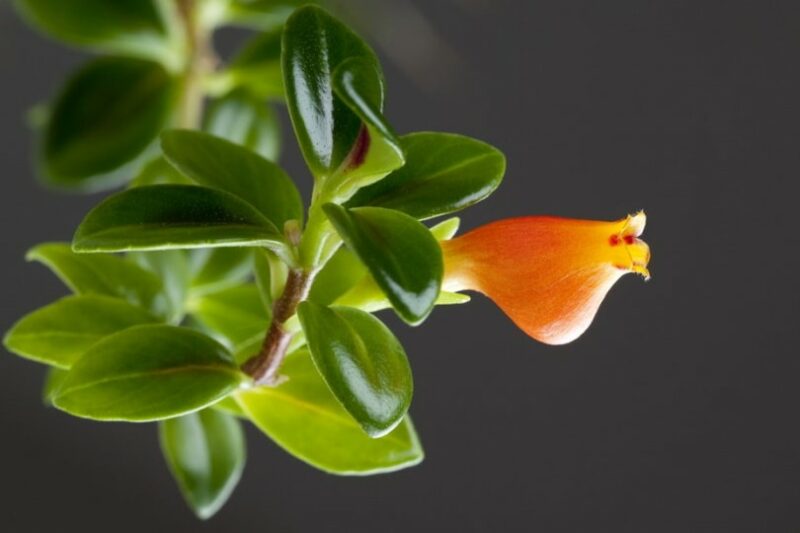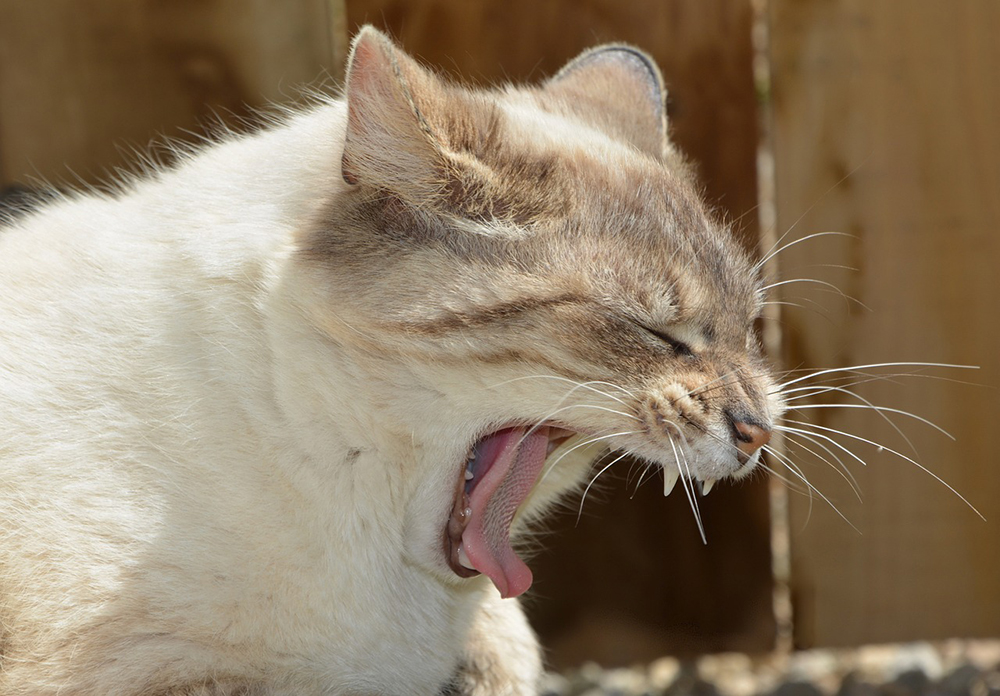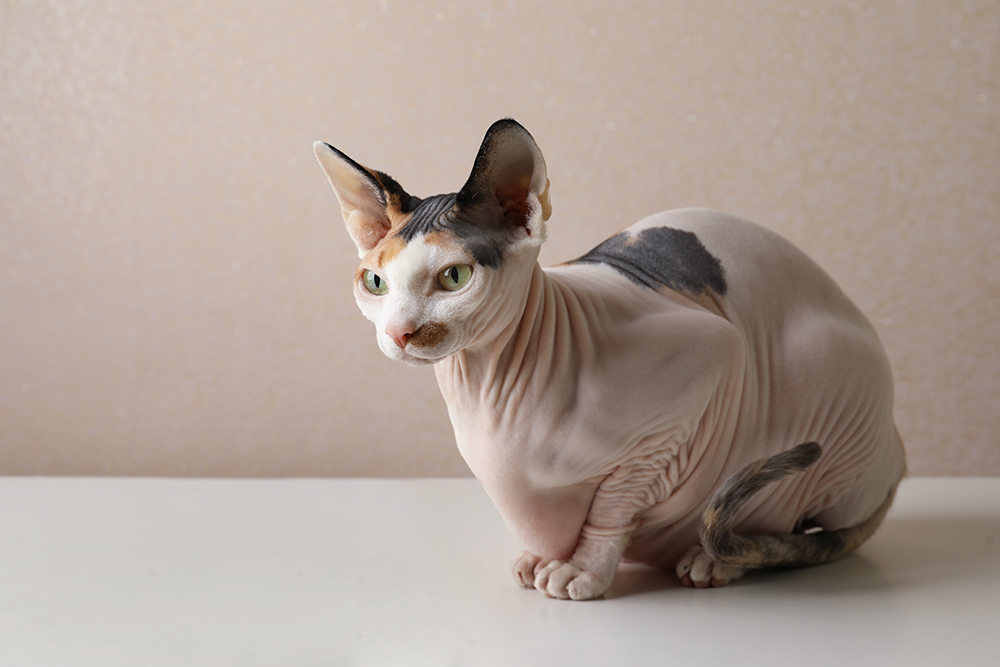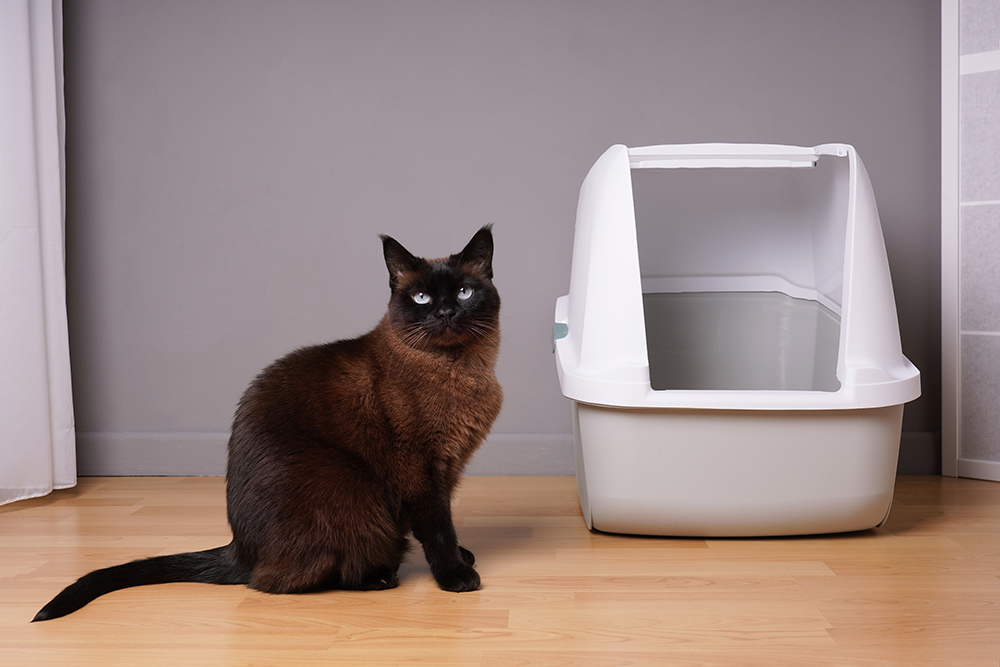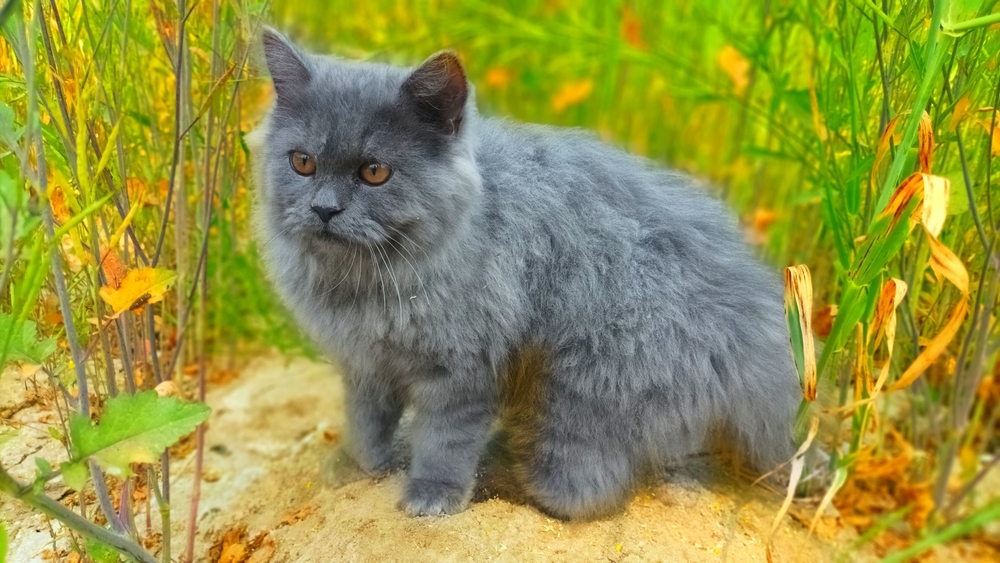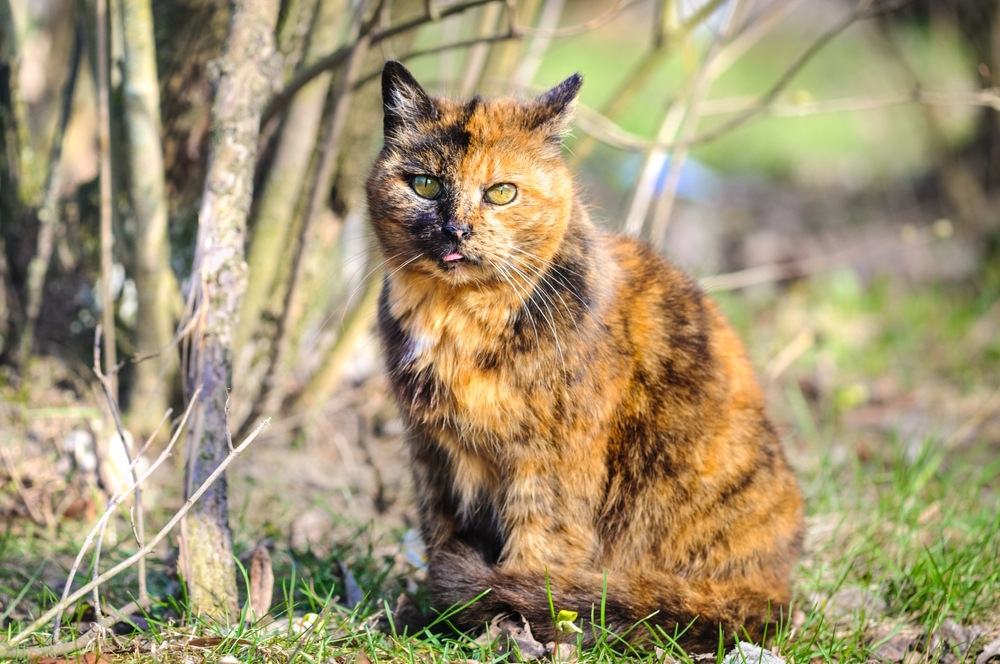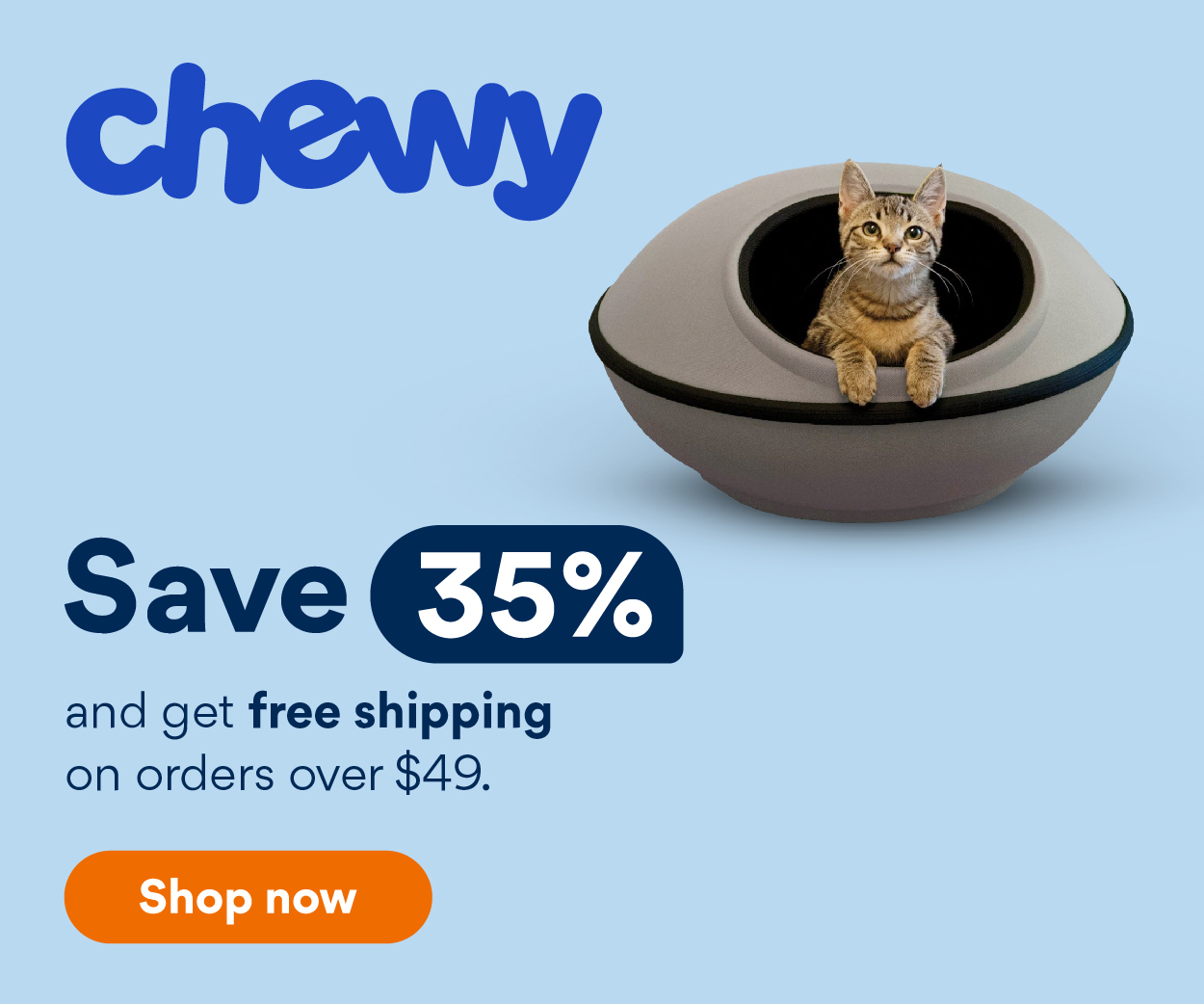Hardy and colorful goldfish plants can make stunning additions to your home. The brightness of the flowers and the movement of leaves can also be an enticing sight to your curious feline. Fortunately, goldfish plants aren’t poisonous to cats and are among the safer options when it comes to households with pets.
That’s not to say your cat will leave them alone, however. You might find a few chunks missing from your goldfish plant if you have a cat that likes to munch on houseplants.

What Are Goldfish Plants?
Earning its name from the brightly colored, goldfish-shaped petals, the goldfish plant has robust flowers that are easy for beginner gardeners to care for. With origins in Brazil, Mexico, and Costa Rica, goldfish plants require plenty of light—but not direct sunlight—and high humidity and temperatures above 55 degrees Fahrenheit.
This plant can be kept in a pot on the table as a centerpiece or hung around the house to add a splash of color to your décor or to keep it out of the way of curious felines. It has orange, yellow, or red flowers and dark green leaves.
Goldfish plants are epiphytes and use other plants, trees, or rocks to support themselves as they grow. Despite their reliance on other plant species, they’re not parasitic and don’t get nourishment from the plants that they grow on. Instead, they use them as a perch or an anchor as they grow.
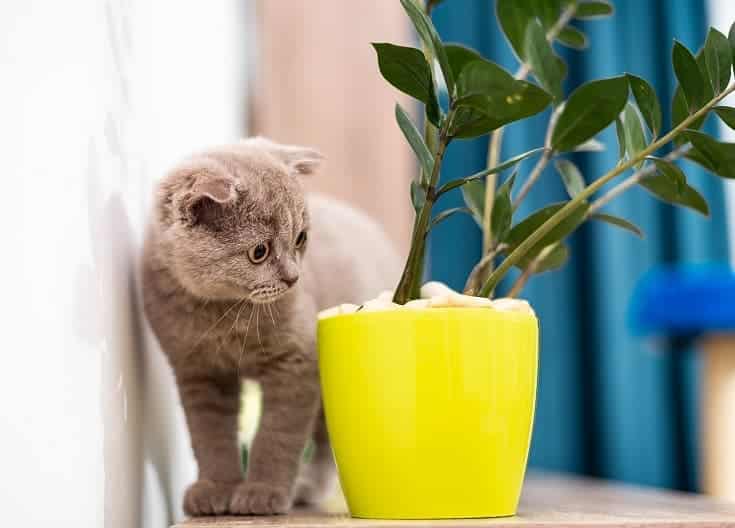
Are Goldfish Plants Toxic to Cats?
Goldfish plants might not be immune to curious felines chewing on them, but they’re not toxic, and you shouldn’t worry if your cat takes a bite or two. Your cat might get a stomach ache if they eat too much of it, but this is because their body isn’t designed to digest plant matter.
A few bites of fruits or vegetables won’t harm them, but too much can strain their digestive system and give them serious nutrient deficiencies. The stomach ache should pass on its own once the plant is out of your cat’s system, especially if you subsequently put the goldfish plant where your cat can’t reach it.

Why Does My Cat Eat Houseplants?
Most cat owners agree that cats can be menaces when it comes to houseplants. However, knowing the reasons that your cat eats plants can help you determine how to take steps to stop the behavior.
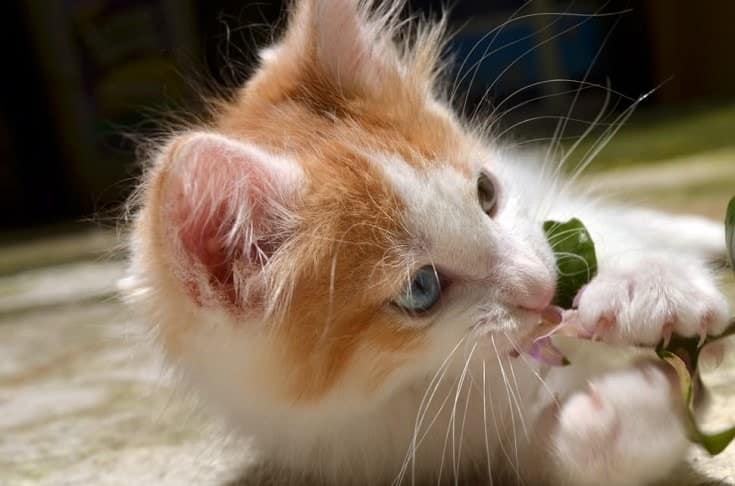
Boredom
Active breeds, in particular, can get restless when they’re bored. The more cooped up they feel, the more likely they will seek ways to entertain themselves. This often leads to them getting into all sorts of trouble.
Your cat might not be interested in your plants until they can’t find something else to do. Nibbling on the leaves is just their way of keeping their minds active.
Nutrient Deficiency
Eating plants might seem strange, but cats sometimes do it for a reason. If their bodies are missing essential nutrients, like fiber, they’re more likely to eat houseplants. You can also plant cat grass and make sure your cat’s diet is nutritionally balanced and that they don’t eat too many table scraps or treats.
Cat grass is a safe plant for your cat to eat—provided that you don’t let them eat too much at once—and will help them receive nutrients they might lack in their diet. It might also keep their attention off your other plants.
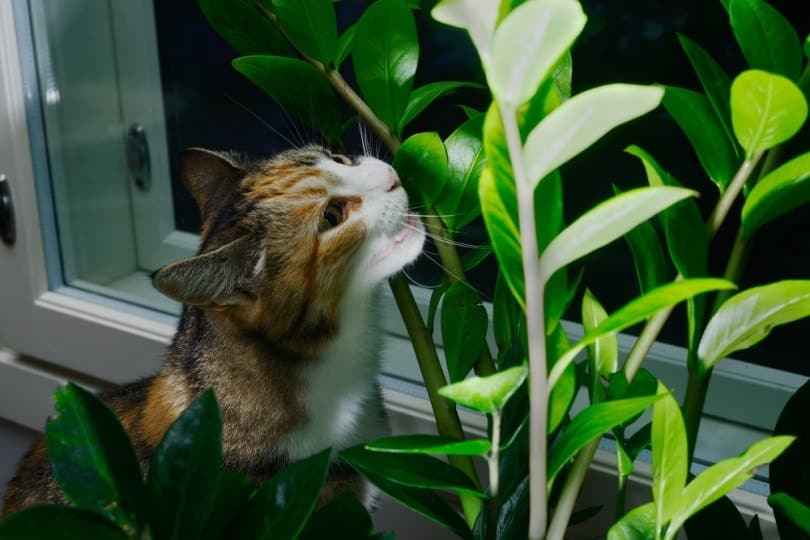
Taste
Taste is a powerful motivator when it comes to food, even for cats. While they can’t taste sweet things, they can taste other flavors. They have preferences when it comes to the flavor of cat food that they eat.
The taste of the plant in your living room is another reason your cat might try to eat it. Enjoying the flavor isn’t always why they take a few bites. Sometimes, they’re just curious about the smell, and investigating with their mouth is how they explore the world.

How to Stop Cats Eating Houseplants
Perhaps it’s their devil-may-care persona, but cats can be incredibly stubborn. Once they set their mind to something, like investigating your goldfish plant by eating the leaves, it can be difficult to convince them not to do it.
Not all hope is lost, though. There are a few nifty tricks that you can use to convince your cat to leave your houseplants alone. As a bonus, they’ll make your cat believe that leaving the plants alone is their idea rather than yours.
1. Alleviate Boredom
If your cat suddenly shows interest in plants they’ve never cared about, they’re likely just bored. More sedate breeds might not care, but if you have a cat that loves to keep their brain active, you’ll need to distract them with more suitable entertainment.
Spend quality time playing with your cat. You’ll be able to alleviate their boredom and build a stronger bond with them. There’s not always time to spare for playtime, and having a few activities your cat can do alone is also recommended.
A cat tree placed beside a window with a great view of the bird feeder can keep your cat busy for a while. There are also electronic cat toys that your cat can play with while you’re away and puzzles that hide treats.
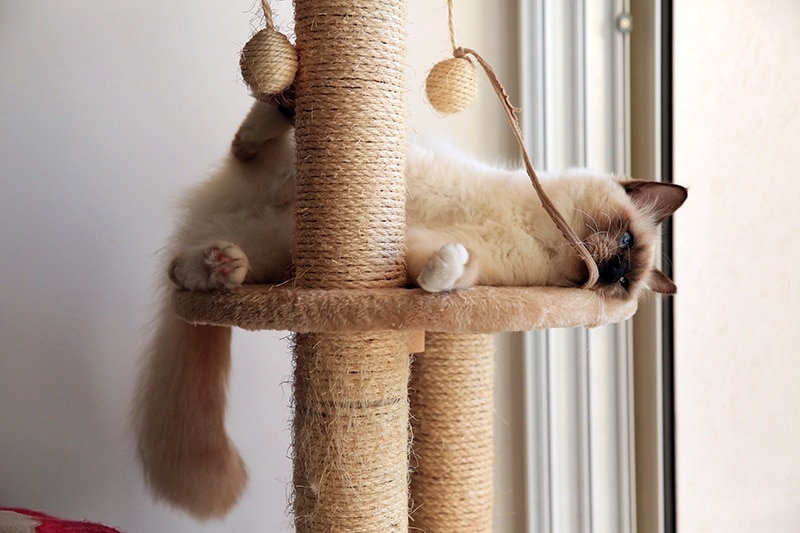
2. Aluminum Foil
Despite their willingness to sit on everything, most cats are picky about where they put their feet. Most felines dislike the noise that aluminum foil makes when they walk on it.
You can place a few sheets around the planters containing your flora, and your cat will likely leave them alone. Double-sided tape works similarly because cats don’t like having things sticking to their paws.
3. Cayenne Pepper
A simple cat-deterrent that you can make at home involves spreading cayenne pepper on the leaves of your plant. This doesn’t harm the plant, and unlike some cat deterrents, it won’t hurt your cat if they ingest it. The unexpected spiciness might just put them off going anywhere near your plants again.
4. Keep Plants Out of Reach
You can keep plants out of reach of your cat in numerous ways. The easiest and most effective method is not to keep plants at all. But since that isn’t always an option, especially for plant-loving cat owners, you can try a few other methods.
Keep your plants in a separate room where your cat isn’t allowed. This can be an effective measure if you keep the door shut and have the space to dedicate to your plants. You could also repurpose an old aquarium. Turn it into a miniature greenhouse in your living room (make sure it has a lid!). You’ll be able to see your plants whenever you want, and they’ll be well out of reach of your cats.
High shelves and hanging baskets can help, too. Choose places your cat can’t easily reach, especially by jumping. Bear in mind that some plants contain pollen that’s toxic to cats, and keeping them out of reach won’t always prevent poisoning.
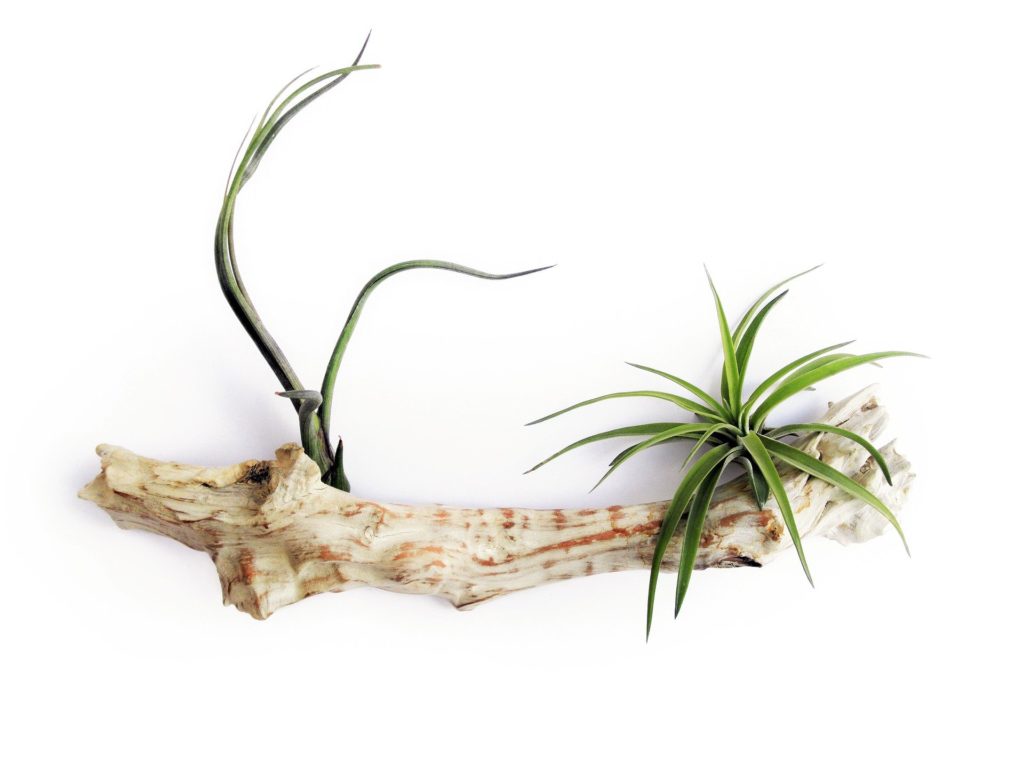

Conclusion
One of the most colorful plants that you can keep in your home is the goldfish plant. Its uniquely shaped flowers and hardiness make it a favorite for plant lovers and beginner gardeners alike. They’re safe for cats, too, and you don’t need to worry if your inquisitive feline takes a bite. You can protect your plant by keeping the goldfish plant out of reach or placing the planter on aluminum foil.
See Also:
- Is Sedum Poisonous to Cats? Common Houseplants Examined
- Can Cats Eat Goldfish? Vet-Reviewed Risks & Precautions
Featured Image Credit: Olga Anourina, Shutterstock

